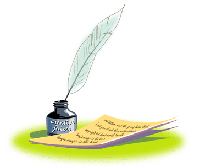The image in the octagonal purple-framed mirror, a mirror smeared with spilt talcum powder from my recent voyage south, showed no similarity to that of my mother. I peered into the murky depths to further investigate. Who was that face looking over my shoulder? An older woman, a vaguely familiar older woman, stared beyond me into a distant space as though she had no connection with the view on offer.
I frowned. Two lines between my eyes added ten years onto my calendar age and consciously I smiled. Anything to restore the youthful appearance I coveted.
The green eyes, rheumy with advanced years, glanced towards the frowns and the other woman’s brow furrowed, in recognition, I fancied. A furrow is truly a strange word to describe a brow. Furrows occur in the field, where turnips or crops for animal fodder are sown. It would be surprising to see a turnip sprouting from a forehead, but the English language is mysterious; reading the dictionary provides an entertainment seldom found elsewhere. That is what my mother thought.
My mother loved crossword puzzles. She often needed the dictionary to aid her solving a puzzle, and a small pocket Oxford was reduced to shreds as she flicked from page to page looking for the solution. The day I refused to loan my new dictionary, a prize at school, a Concise Oxford, larger and emblazoned with the school crest in gold on the front cover, was a sad day. Today the psychologists would no doubt dub it with the tatty label of rejection. It was not a rejection of my mother, simply a method to keep my precious book intact. I had seen how dictionaries lives deteriorated when owned by a crossword addict. Of course I am not addicted to crosswords. My mother and I have few points of connection.
Since the advent of computers we seem to have less time to sit and write letters. It should be easier to type a letter and print it out, it should be, but time is of the essence. My mother wrote letters on Sunday afternoons. A ruled quarto pad that had its home in a kitchen drawer, the same drawer that held recipe books; hand written recipe books splattered with butter and sugar, and egg mixtures on the pages where her favourite cakes or biscuits had been meticulously copied in pen and ink; and string, for tying three layered greaseproof paper lids onto aluminum steamed pudding bowls before they were carefully dropped, by the string bow, into a white enamel pot with black side handles saved expressly for steamed puddings; and crinkled cellophane jam covers that became smooth when dipped in a saucer of water, and colouring in pencils hidden from children. A ballpoint pen held no fascination for her. She preferred pen and ink. Seldom did blots mar her correspondence.
I never read any of her letters. Believe me it was not for wont of trying. From the other side of the old wooden table that served as breakfast, dinner and tea table, that doubled as an ironing board covered with a thick grey blanket, as relic donated by her brother, my uncle, from his wartime possessions, and covered with a layer of white sheeting thin at the edges, the table on which sewing tissue patterns were laid carefully over a variety of fabrics before being cut carefully around the edges, and the same table on which homework was done, dolls dressed, books read, a cast-iron red painted tractor driven over a dangerous terrain of comics and pieces of kindling, the table that was home to exciting card games, I often peered in an effort to read the words on that quarto writing tablet. Always her hands came up to guard the secrets she shared with her cousin, or her brother, or sister-in-law. My mother never wrote to me.
Shortly after her demise the daughter of one of her regular correspondents wrote to me. In her letter she expressed the pleasure her mother gained from my mother’s letters. Like me, the daughter never read those letters, and if any survive until this day, then I have not read them.
I like to write letters, but I seldom indulge in crossword puzzles. I wonder if my mother would find pleasure in Code Cracker puzzles. I prefer them to crosswords. Both require knowledge of words, albeit at a different level. Today, while my dictionary is slightly dog-eared, it is still intact.
The woman looking over my shoulder in the mirror knows words. Perhaps we do have words in common?
A Wasted month
10 years ago


No comments:
Post a Comment